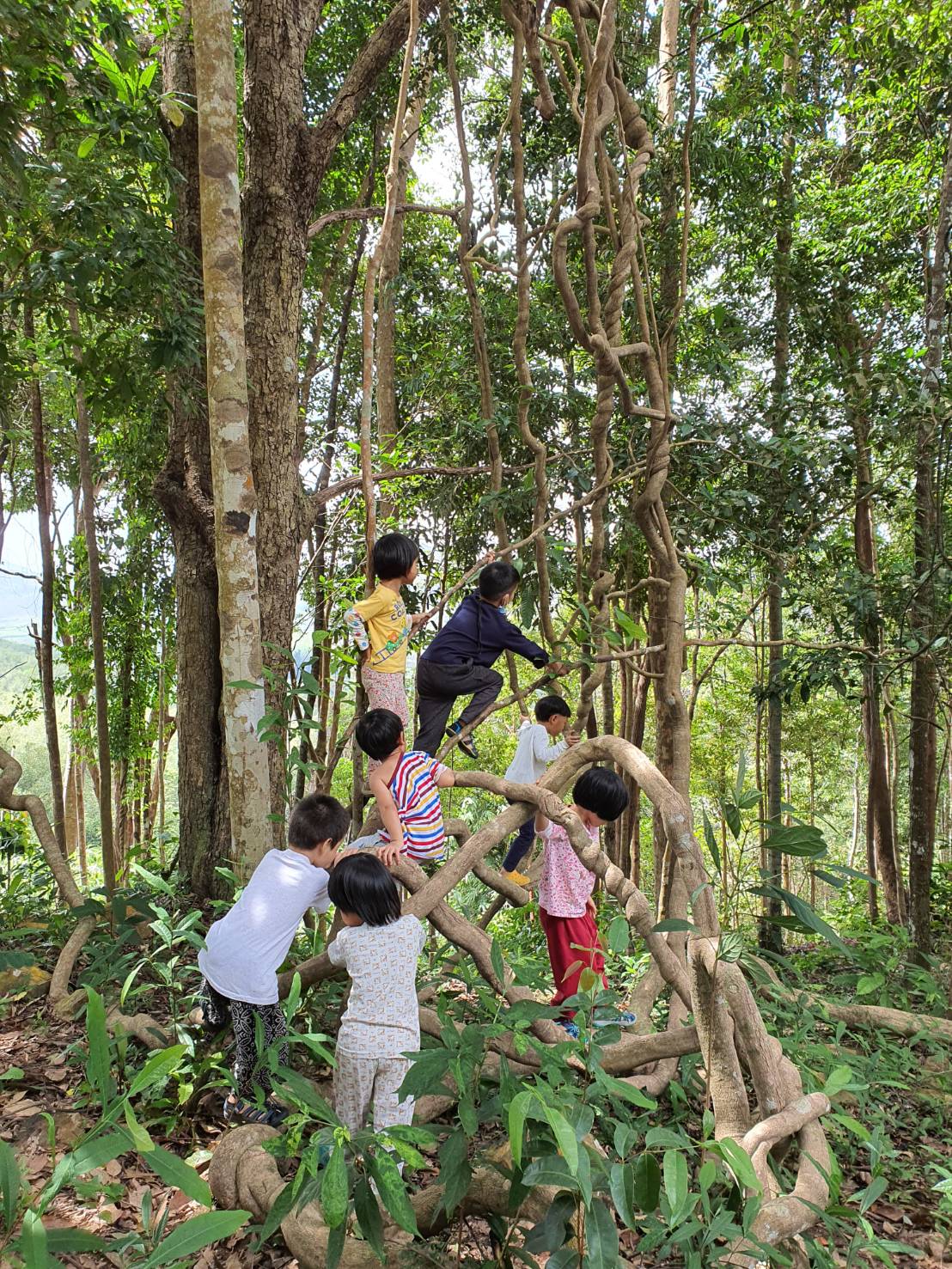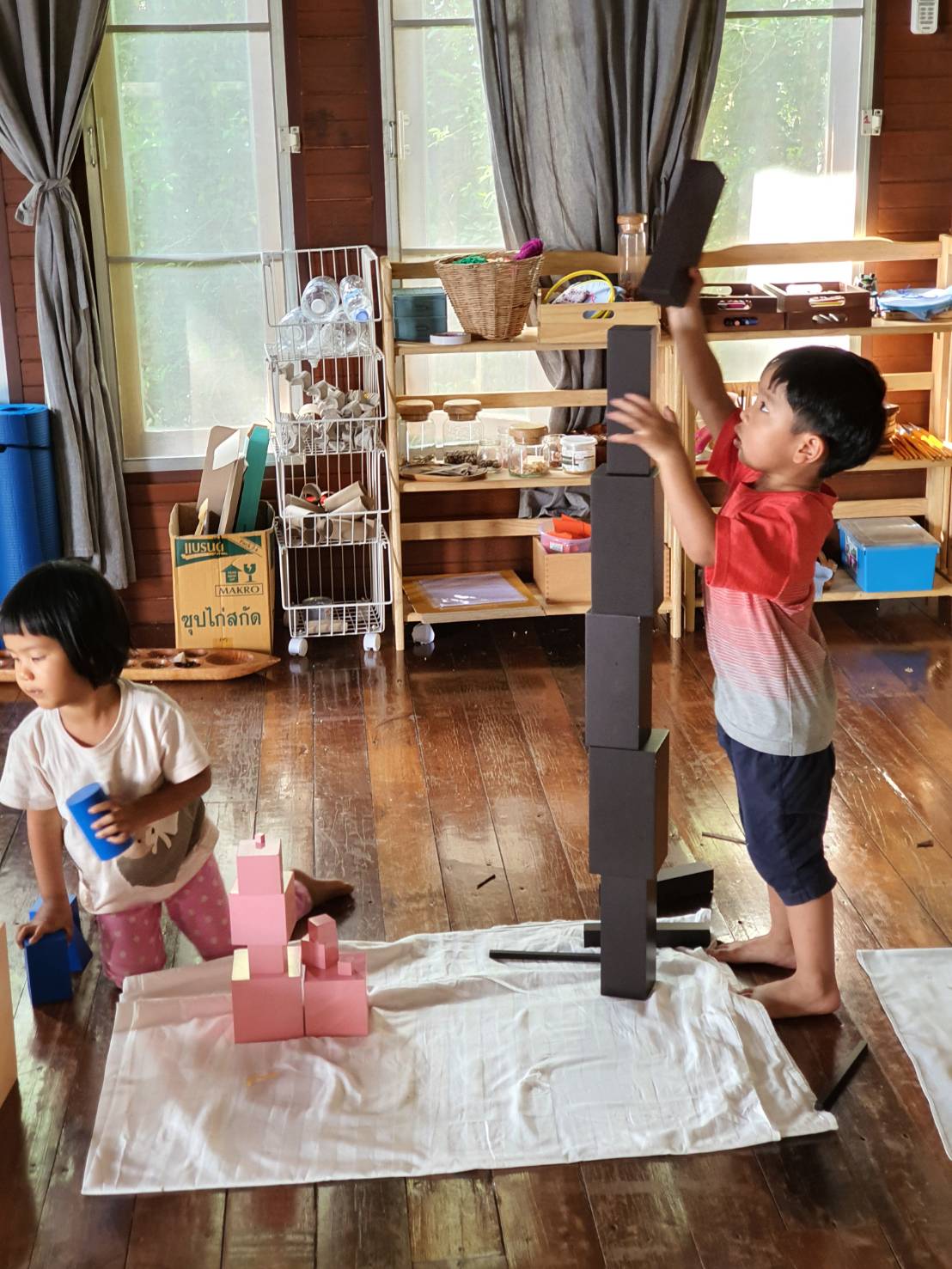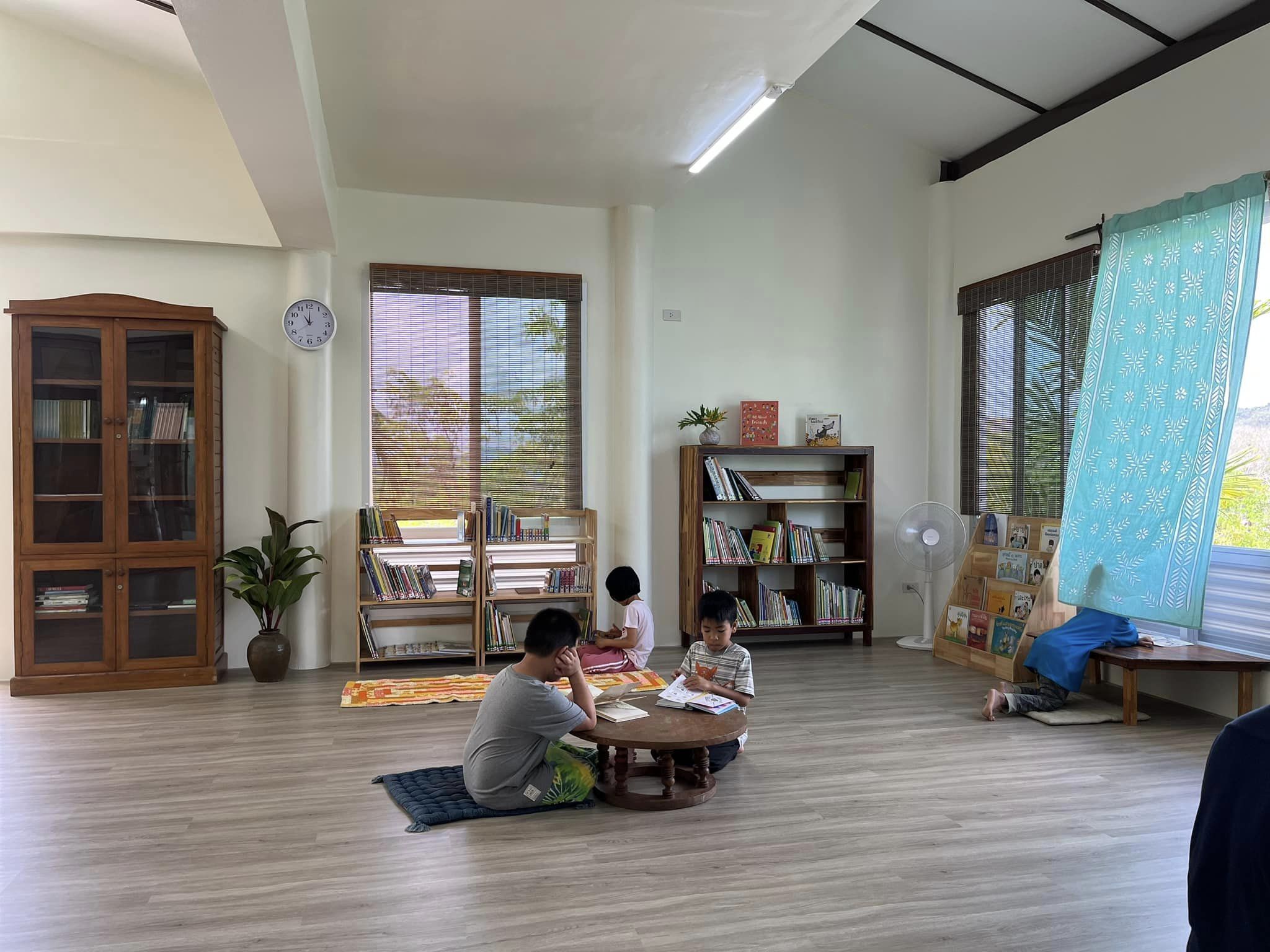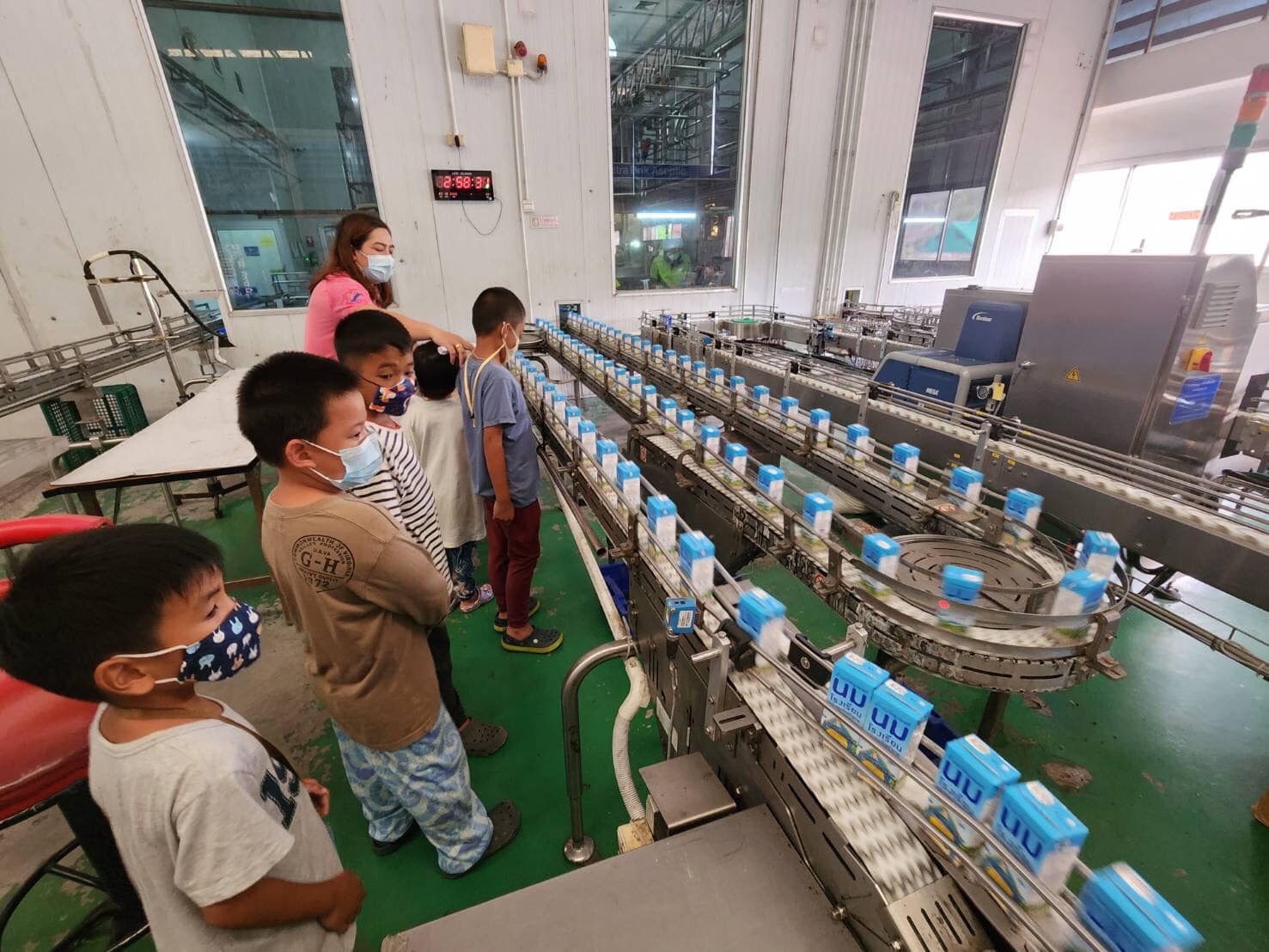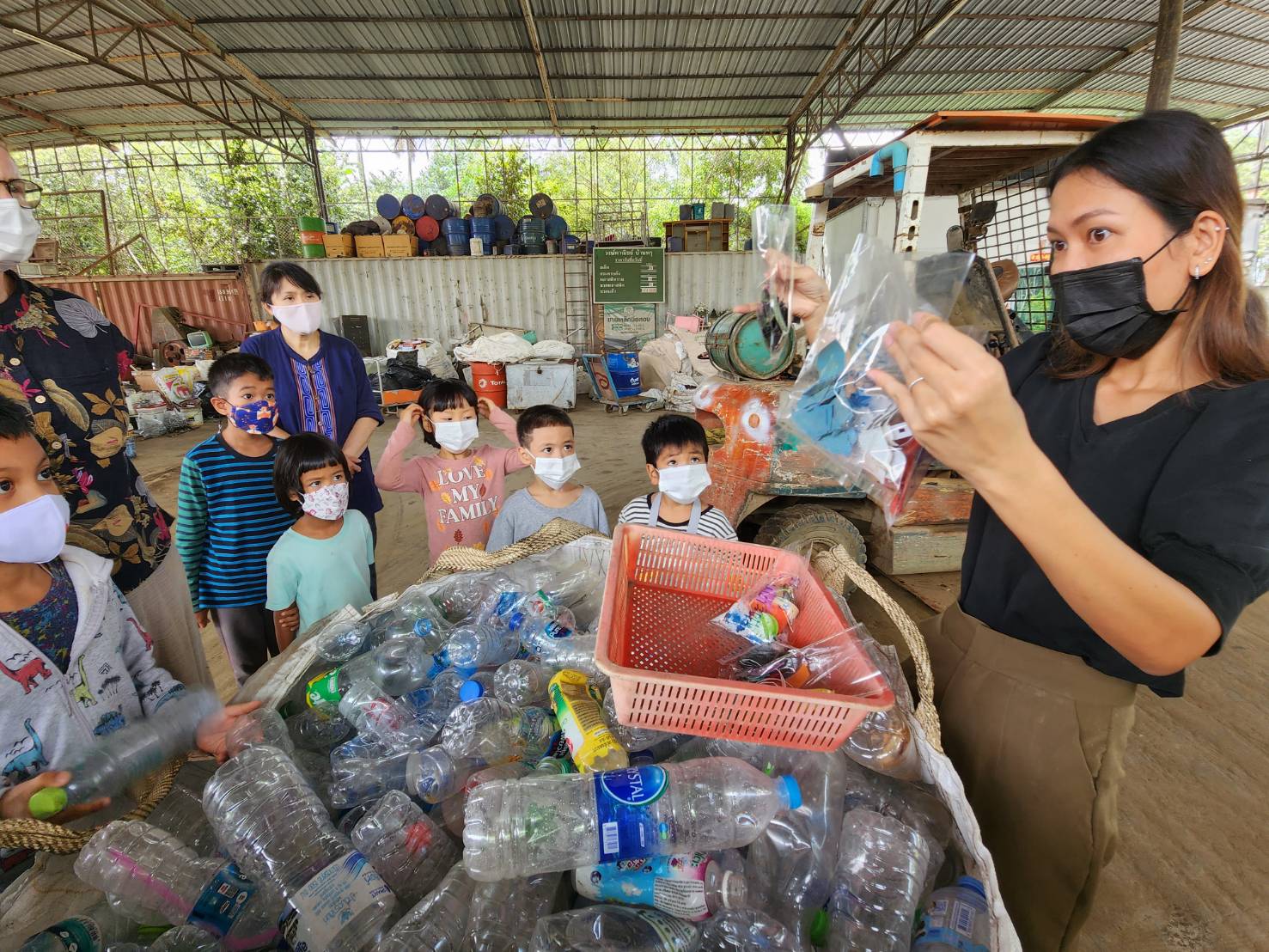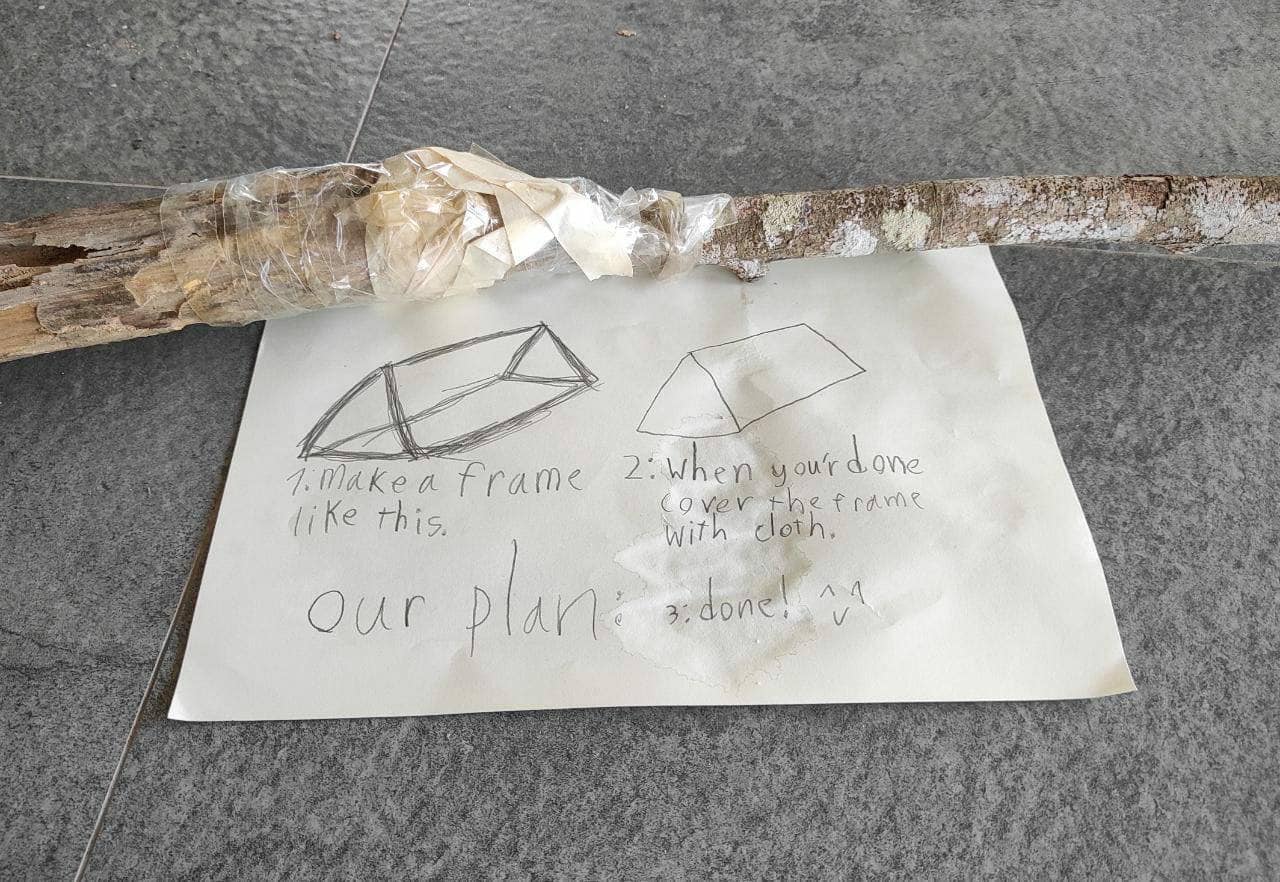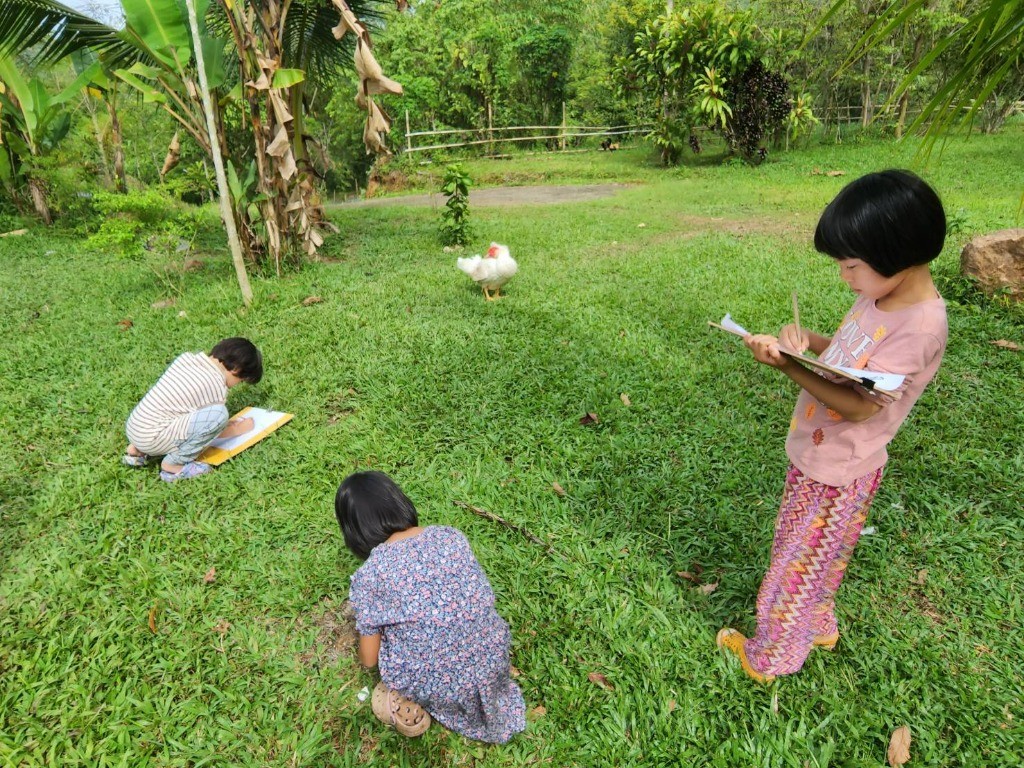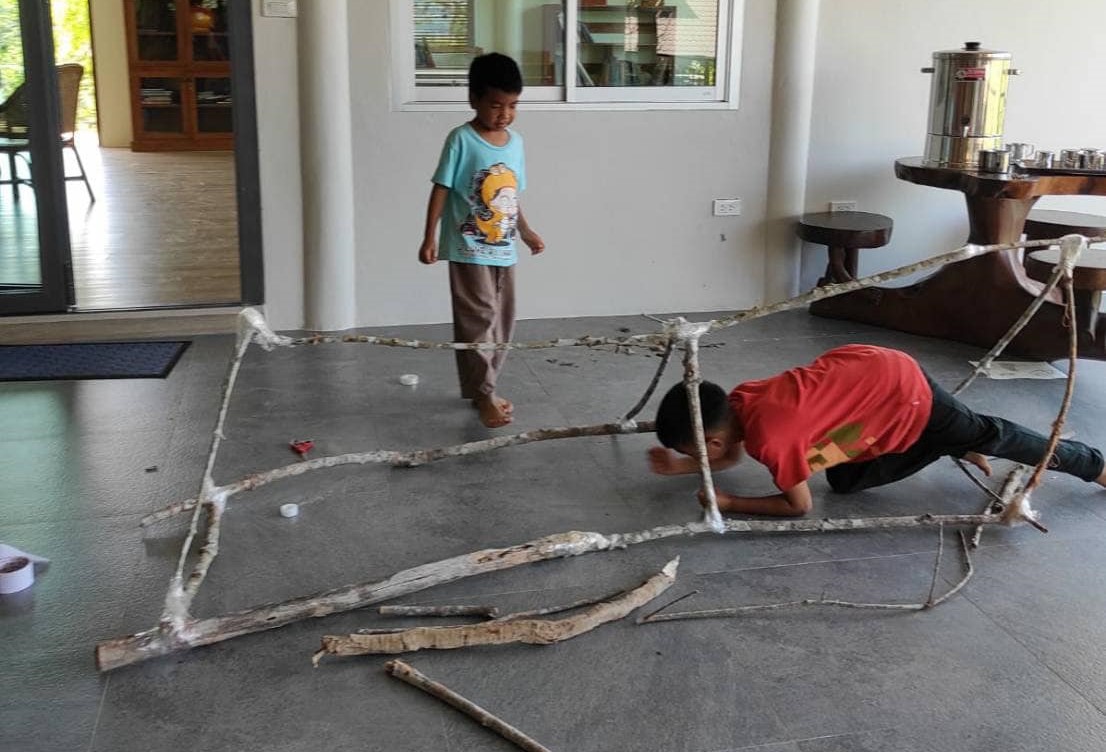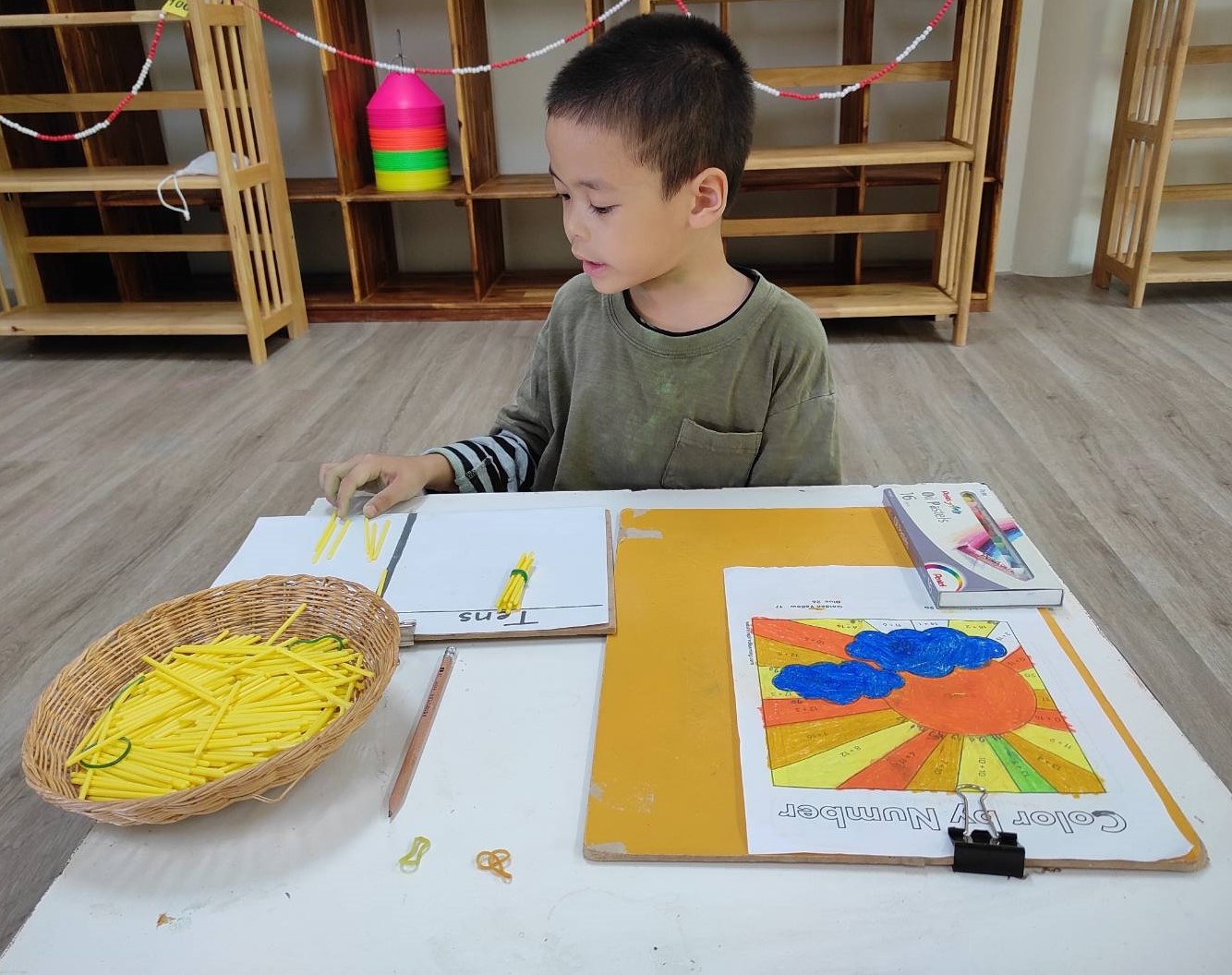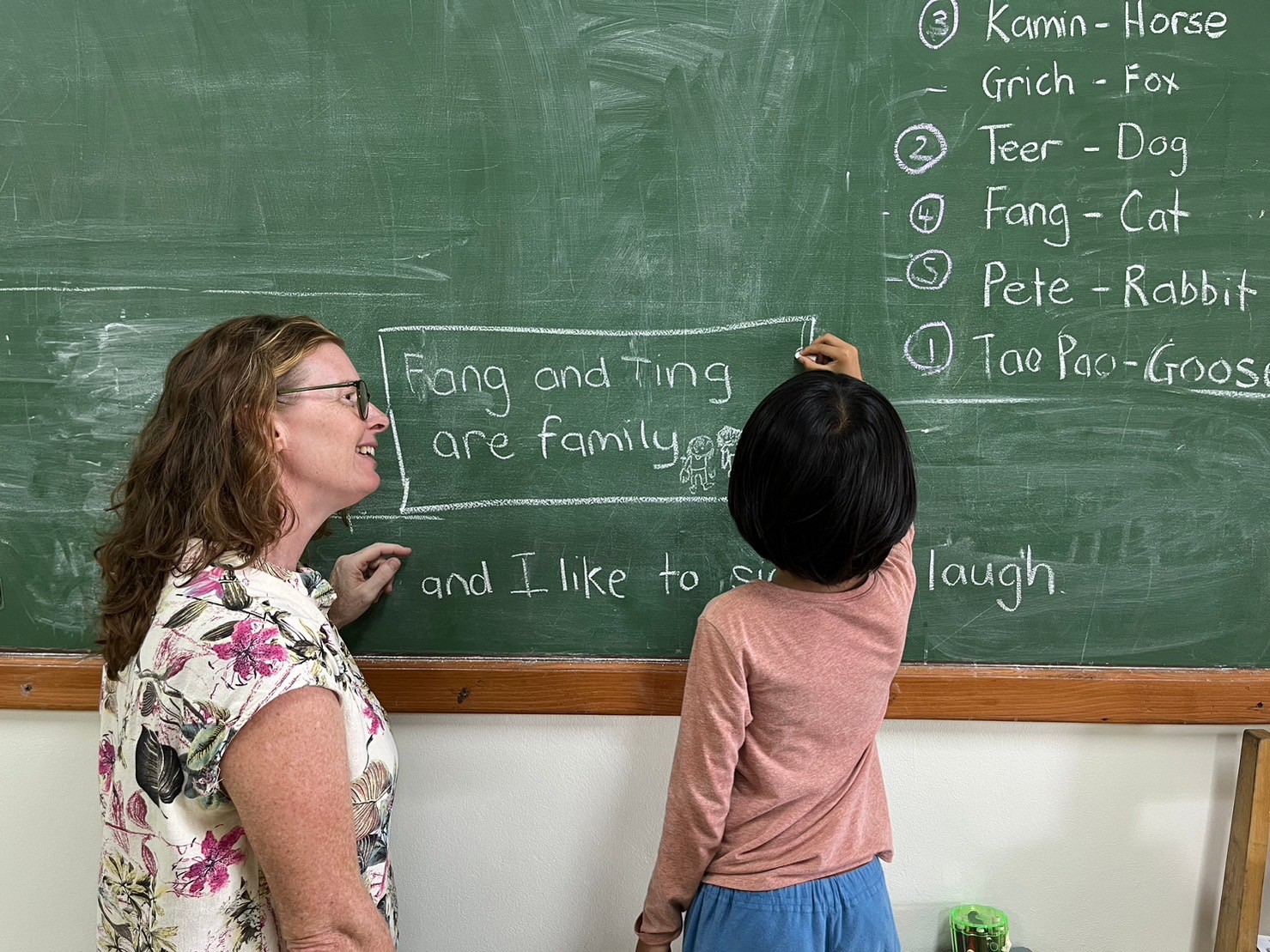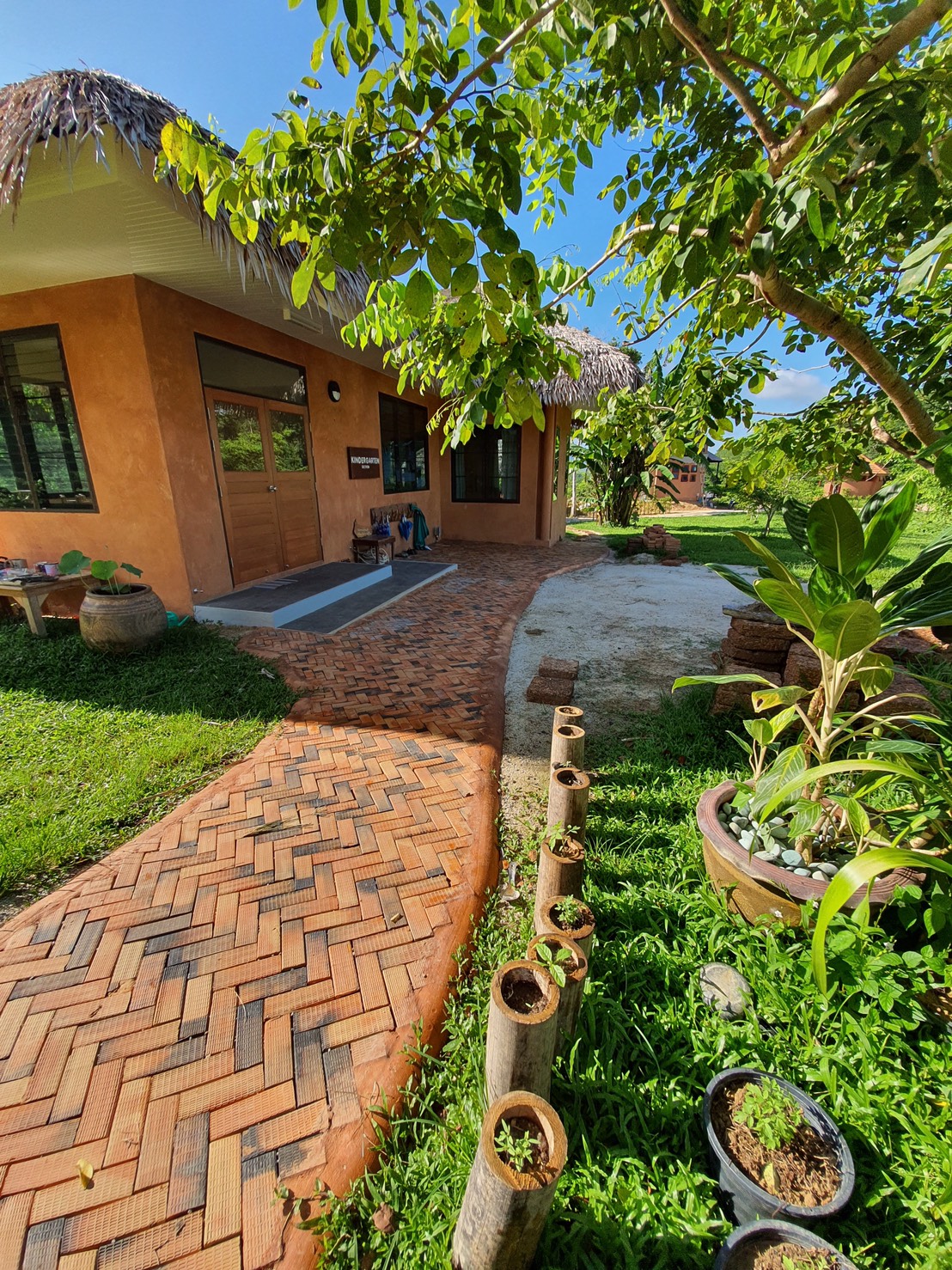Early Years Program
|
Based on the Early Years Foundation Stage (EYFS), the statutory framework for Early Years education in England, our curriculum draws content from some of the best approaches in progressive education to reflect our learning principles. For example, the natural outdoor environment acts as our primary learning space, inspired by forest school and play based educational practices. Our semi-structured activities have been inspired by the Reggio Emilia approach that allows for multiple ways of learning and expression. In this approach, teachers continually design the curriculum, units and lessons, in relationship to the unfolding interests and readiness of the children. In our early years program, children learn in a mixed age group and spend every morning in nature where they are drawn to explore, interact and become resilient. Wonder Valley’s natural setting provides space where children benefit from:
The morning session includes an unstructured free play session as well as a more structured session that incorporates elements from our early years curriculum.
Afternoon sessions are quasi-indoors with both structured and semi-structured activities organised to teach children skills appropriate to their development.
Our indoor learning space is divided into different corners for arts, handcrafts, woodwork, reading, numbers, language, music, role play and other loose ended materials that children can utilize to express themselves individually and in groups based on their individual learning processes.
Our pedagogy is grounded in the constructivist approach, which emphasises learning new knowledge and skills through experiences and actively doing, as opposed to the conventional methods in which students are passive learners awaiting for knowledge to be passed to them. Teachers are trained in how to guide students to ask questions and give attention to the answers that they discover together, not jumping ahead of where the child is, being present and curious in relation with each child’s blossoming interests.
Children are taught to read when showing interest and ability, following our phonics programme. Parents whose child has reached this stage are sent guidance on how to support their child’s learning at home and words to practise for a few minutes at home each day.
When conflicts arise between children we try to find out why and inquire into the issue together instead of treating it as something trivial or using methods of reward or punishment to address the situation. We allow children to express their feelings and emotions completely as they are without trying to change them to something more “desirable” or “good”. This creates space for them to feel the raw emotion without condemning themselves so that later on, they may be able to inquire into the cause of it and see its impact on themselves and others.
|
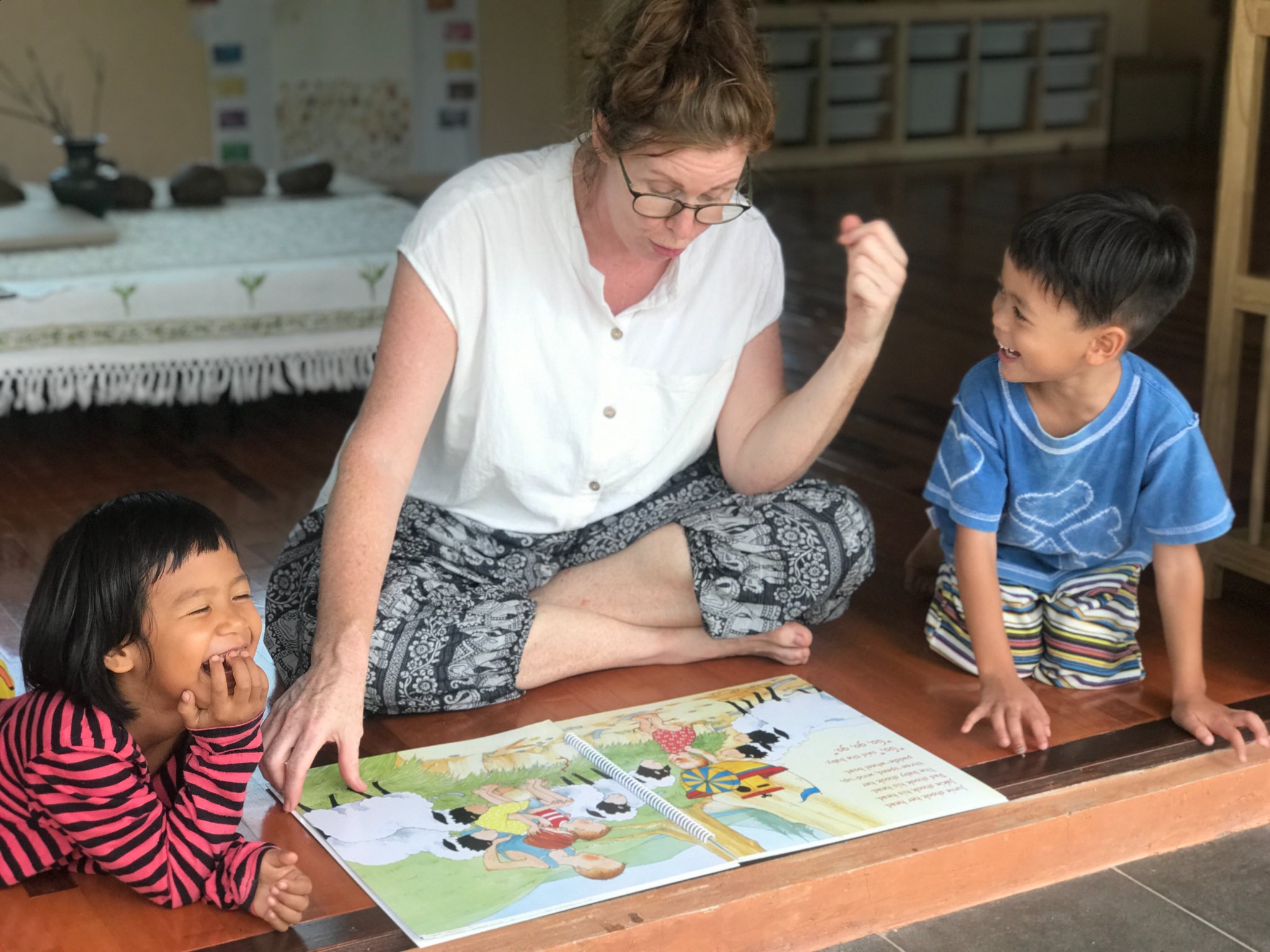 |
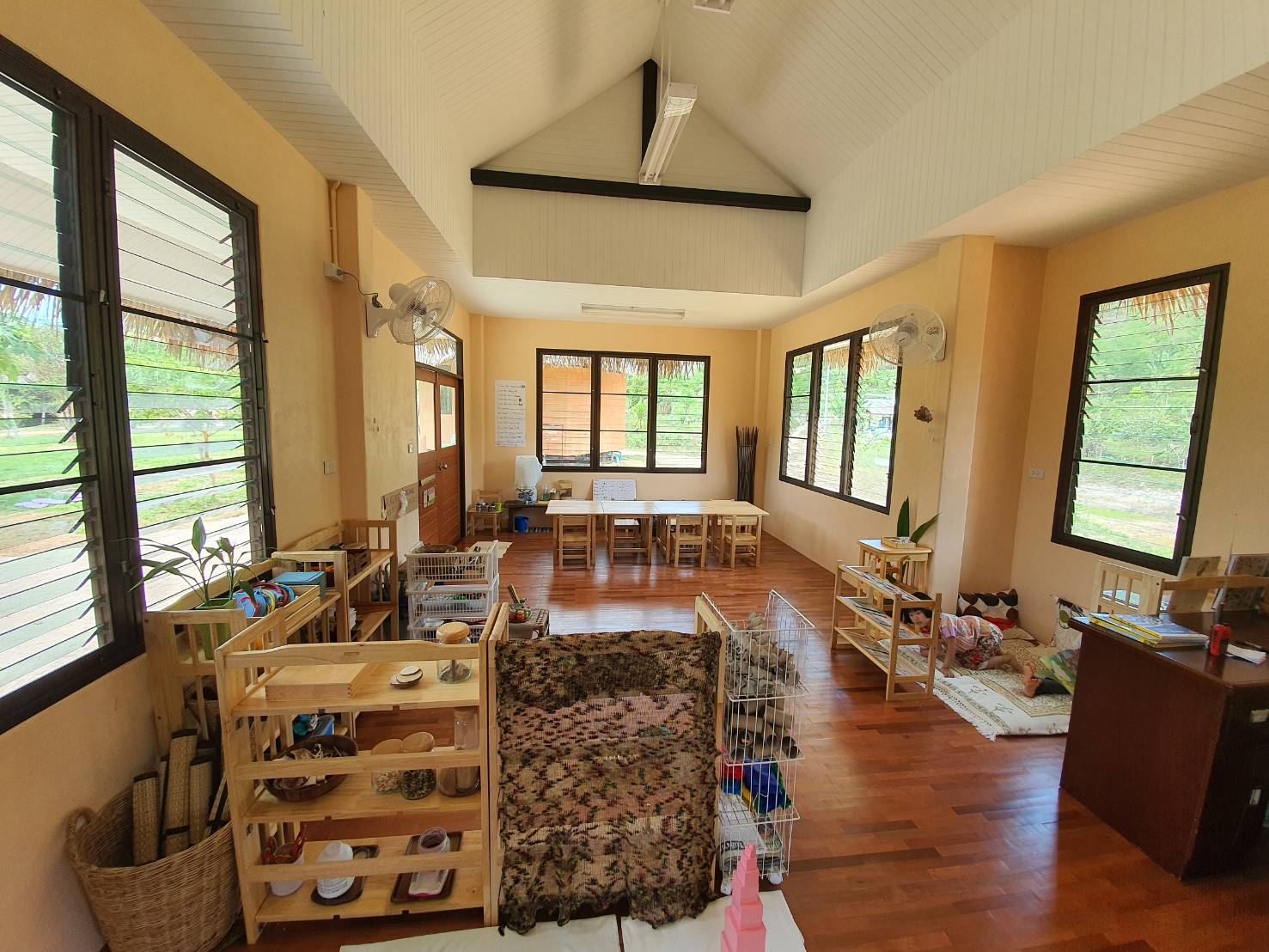 |
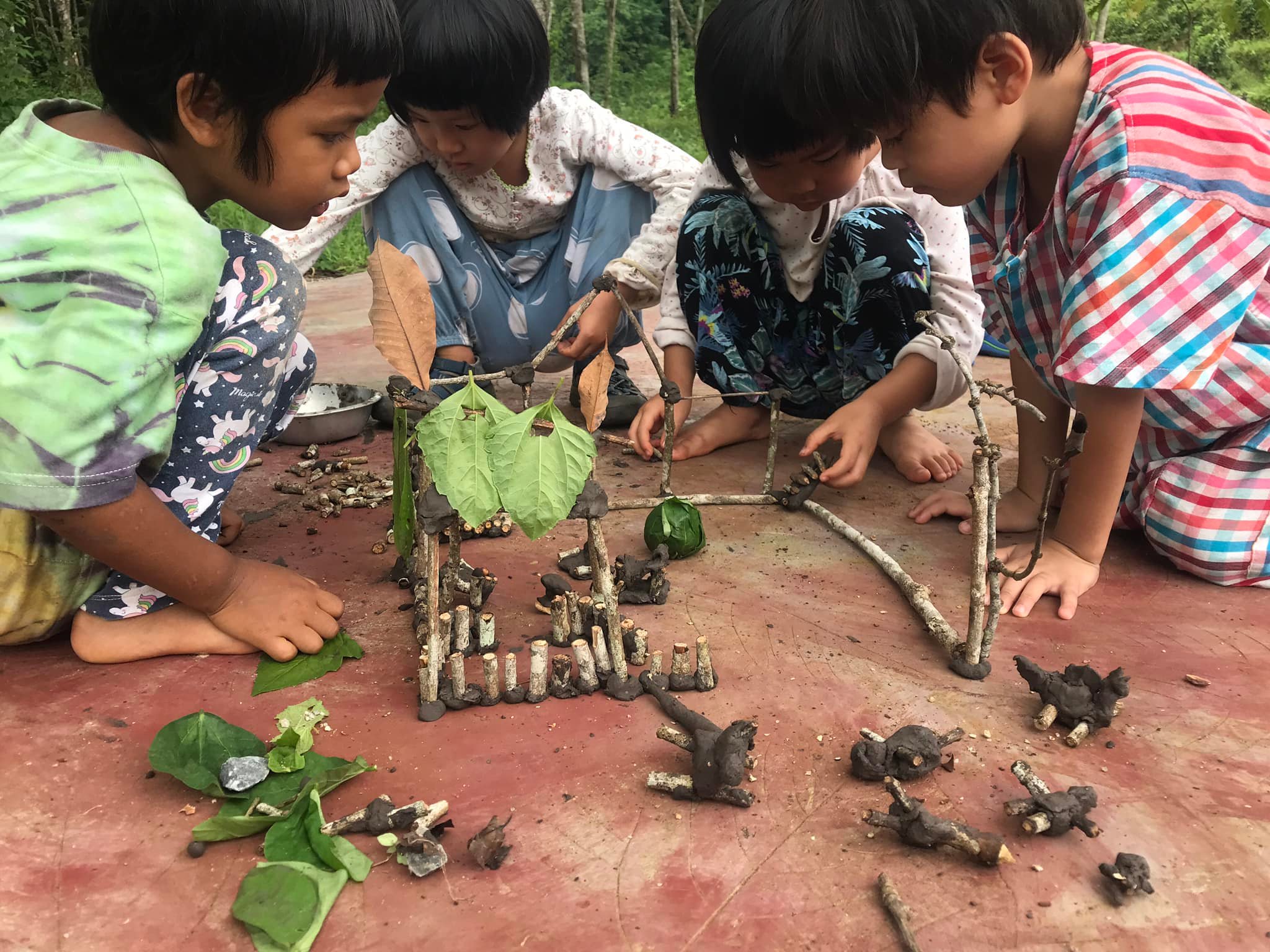 |
Primary Years Program
|
Using The national curriculum in England, our primary programme builds on the Early Years curriculum (EYFS). Children continue to engage with the outdoors, learn through hands-on activities and assimilate their knowledge in a more structured way and make connections between different areas of learning, such as what they see in the forest and books they are reading or between their own questions and the math or science needed to discover the answers.
In the primary years the children will make the transition from natural curiosity and intuitive understanding to more formal knowledge creation. Our pedagogy is rooted in inquiry-based and project-based learning where the children’s questions, interests, ideas and observations drive the learning experience.
|
|
||||||
|
Teachers and students both share responsibility for learning in this environment. Teachers play an active role in this process by building a safe space where children can challenge, test, and redefine their ideas. This allows the children to move from wondering to structured understanding and further opportunities for questioning.
Students engage in projects, open-ended investigations, and structured learning. These not only allow children to situate their learning in the real world but also work collaboratively with others and enquire together.
Students go on field trips and excursions which takes them out of the classroom and puts them in unfamiliar settings. It provides them with opportunities to participate in rich experiences connected to the world, and see the relevance of their classroom learning and its connection to the broader world. They have to apply problem solving skills, develop interpersonal skills, and translate this learning to their decisions and actions. It also gives them the opportunities to reflect on new experiences and engage in meaning-making.
|
|||||||
|
|||||||
Assessment
|
Learning that is driven by the fear of having to pass exams or get good grades robs children of their journey to discover their own potential. We do not see the use of competitive exams nor comparative grading to assess children. However, non-comparative evaluation of skills is possible and essential to the learning process. Since the primary purpose of assessments is to help children in the learning process at Wonder Valley, evaluations are ongoing, varied in nature and allow for children to show their learnings in different contexts.
Observations, conversations, rubrics and activities provide evidence of learning. Documentation of learning is an integral part of the evaluation process and each student has a portfolio to reflect on their learning journey. This allows children to identify what they have learnt, how the process has been, and what their next step could be. They begin to take more ownership of their learning to move towards becoming more independent learners.
|
|
|
Parents are given an end-of-year report showing them their child’s learning journey for the year and what possible areas they could be further supported in at home. While we want children to work with their capacities being challenged and not discouraged through examinations, we are aware that certification is necessary for them to continue higher studies. Children at Wonder Valley will be supported to take their first formal exams at the IGCSE level, when we feel they are ready for it, between the ages of 14-16 depending on their grade 1 entry. This certification is given by the Cambridge Assessment International Education. It is recognized nationally as well as worldwide and allows students to sit for exams on their chosen subjects for education advancement at any age.
|
|
Healthy Diet
With the holistic approach in education, we believe that there are many factors that contribute to health, wellbeing and development of a child. Apart from indoor and outdoor activities designed to support the child’s physical, mental and emotional developments, food also plays an important role in the growth of children. The brain uses a significant amount of energy daily, so it’s crucial that we make sure the children receive enough energy and nutrients from their diet to maximise their full learning potentials.
Meals at Wonder Valley are cooked with fresh ingredients from scratch. We promote the consumption of fresh fruits and vegetables and whole grains as well as organic free-range eggs and locally-sourced, additives-free seafood. Including a variety of fruits and vegetables doesn’t only make sure they get all the nutrients needed, but also encourage an open-minded attitude towards food. By familiarising themselves with a healthy diet from a young age, children will grow up with a strong foundation, not only in their physical body (which also has an effect on mental and emotional wellbeing) but also in their ways of thinking and making the right choices for themselves in the future.
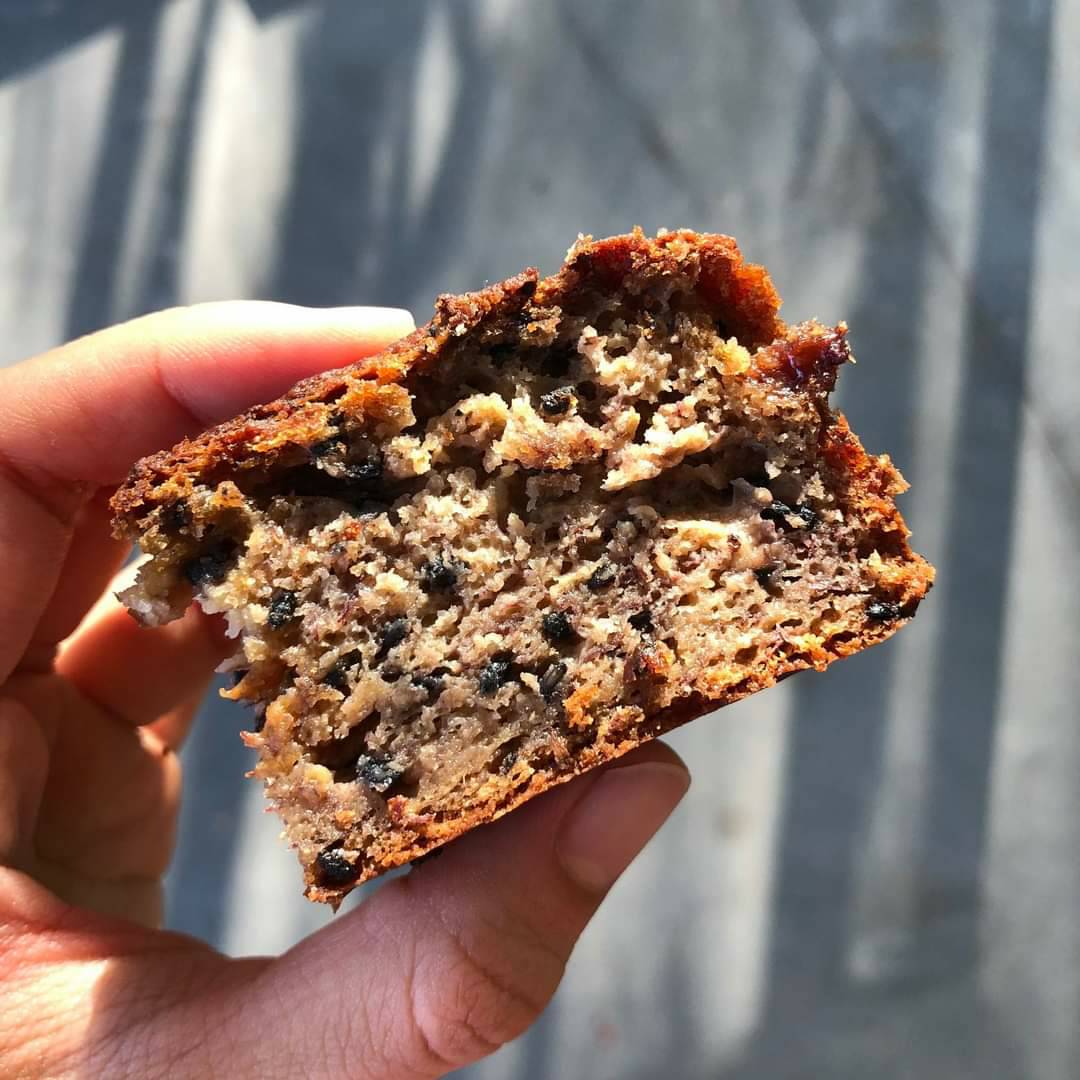 |
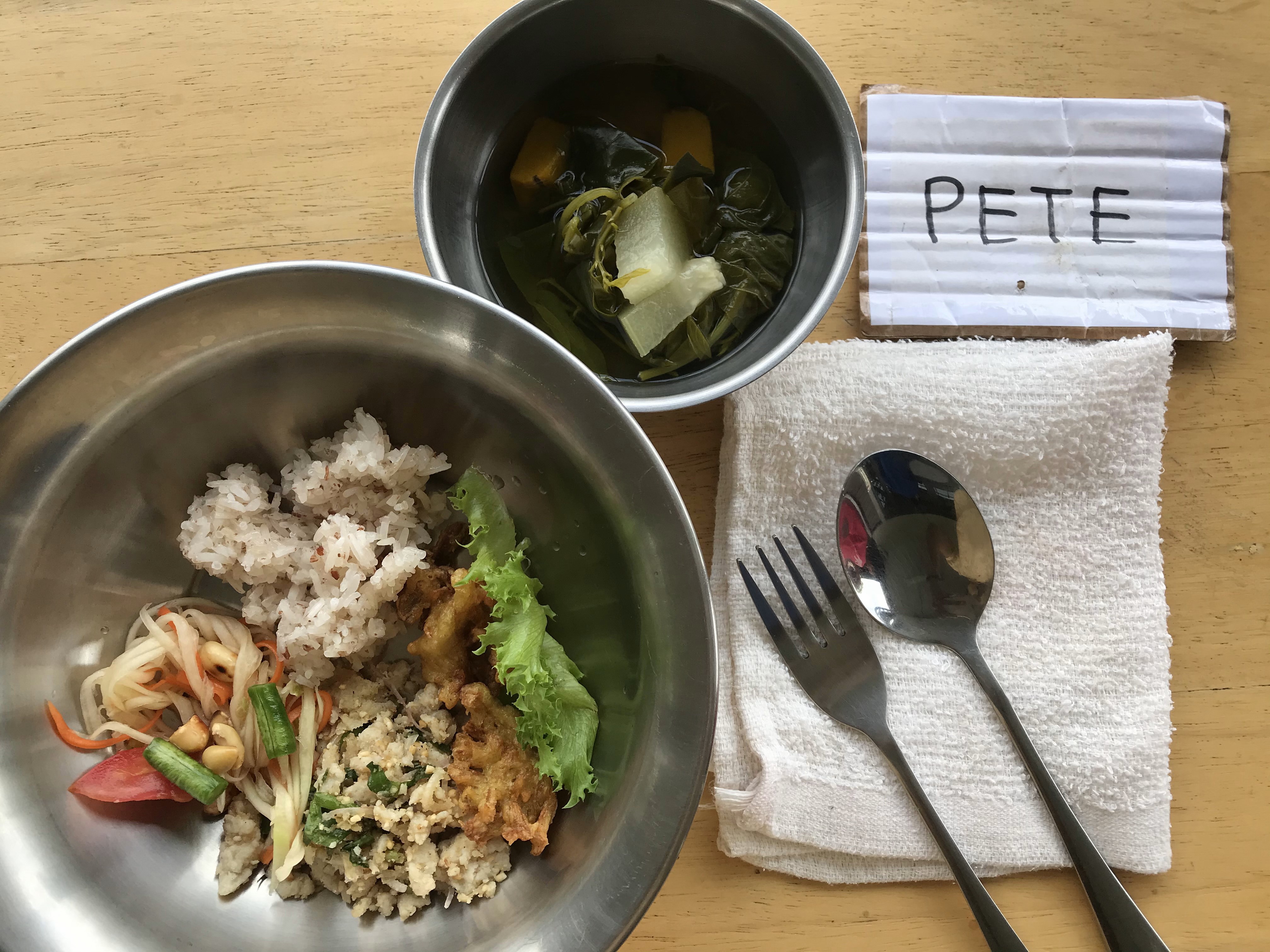 |
 |
Campus & Facilities
|
Arts and Crafts Centre (offering mediums such as batik, tie and die, pottery, sculpture, carpentry, etching, thread crafts) Performance Arts and Music Centre (offering mediums such as traditional dance, theater of fold shadow puppets, traditional and western musical instruments)
|
|





